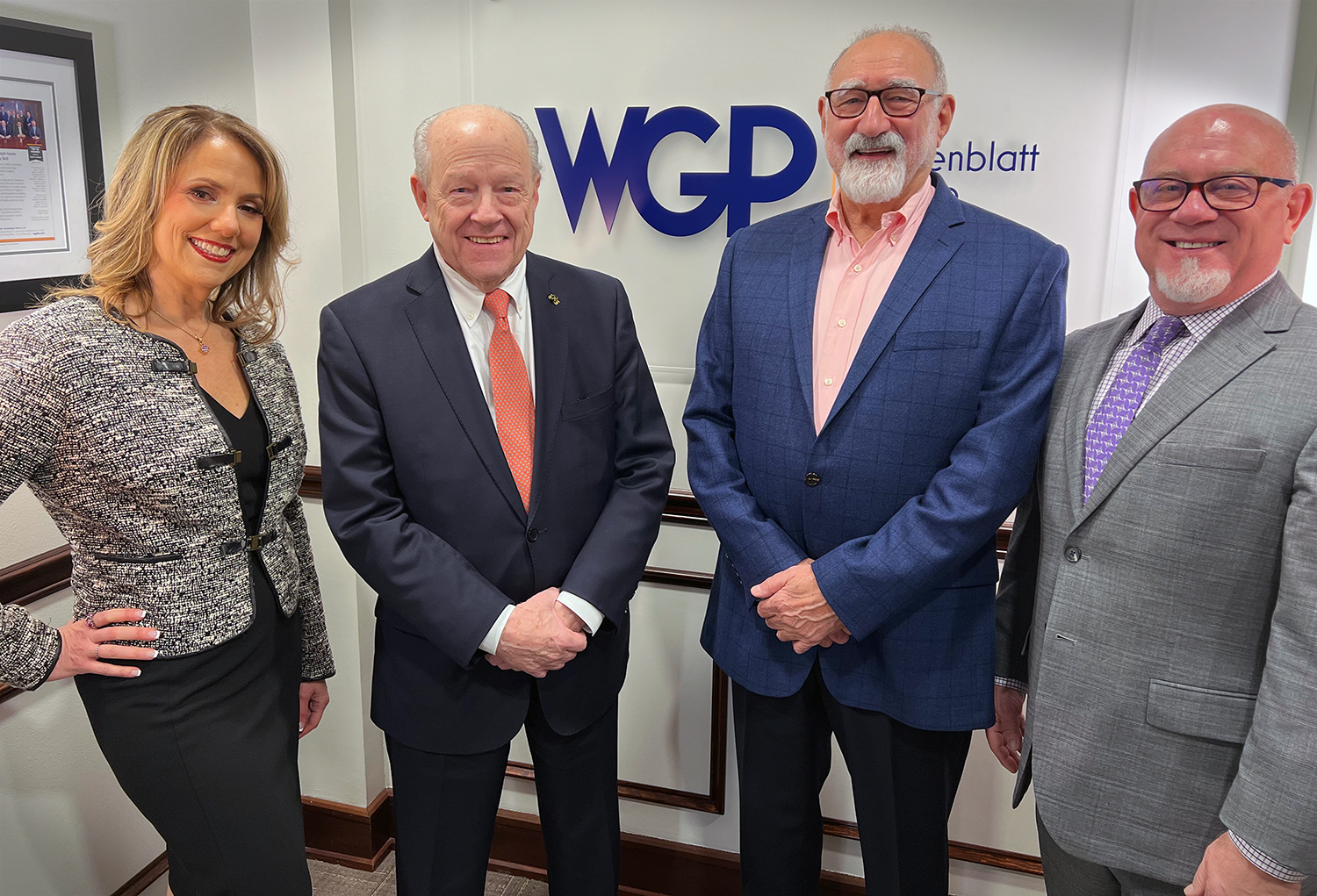 On April 29, 2014, Alan Yatvin gave written testimony on behalf of the American Diabetes Association before the United States Senate Judiciary Committee, Subcommittee on the Constitution, Civil Rights, and Human Rights on “Law Enforcement Responses to Disabled Americans: Promising Approaches for Protecting Public Safety.”
On April 29, 2014, Alan Yatvin gave written testimony on behalf of the American Diabetes Association before the United States Senate Judiciary Committee, Subcommittee on the Constitution, Civil Rights, and Human Rights on “Law Enforcement Responses to Disabled Americans: Promising Approaches for Protecting Public Safety.”
The text of the written testimony appears below:
Testimony of Alan L. Yatvin, Esq. Legal Advocacy Subcommittee American Diabetes Association Before the Subcommittee on the Constitution, Civil Rights, and Human Rights Committee on the Judiciary United States Senate “Law Enforcement Responses to Disabled Americans: Promising Approaches for Protecting Public Safety” Tuesday April 29, 2014 — 10:00 a.m.
Introduction
Thank you for the opportunity to submit testimony on behalf of the American Diabetes Association (Association) and on behalf of the nearly 26 million Americans who have diabetes. The Association is the largest, most prominent nongovernmental organization that deals with the treatment and impact of diabetes. It establishes and maintains the most authoritative and widely followed clinical practice recommendations, guidelines, and standards for the treatment of diabetes. This includes a medical statement on diabetes management in correctional institutions.
One of the Association’s top priorities is giving voice to those denied their rights because of diabetes. We seek to ensure people with diabetes are free from discrimination in all areas of daily life, including by working to make sure people with diabetes are treated fairly by local law enforcement agencies.
I am the immediate past chair of the Association’s Legal Advocacy Subcommittee and have worked closely with the Association to ensure law enforcement agencies have the tools necessary to fully serve and protect all people living with diabetes. I hope the Association’s experience will be useful in developing collaborative strategies to ensure fair treatment of people with diabetes and all disabilities.
In my testimony I will focus on the following areas:
1. The scope of the problem of inappropriate law enforcement response to people with diabetes, including representative incidents. 2. The medicine and science of diabetes emergencies. 3. The Association’s work with community partners, including law enforcement agencies, to provide quality diabetes training.
1. The Problem: Ignorance of Diabetes
The concern with regard to diabetes and law enforcement centers around the lack of adequate training on how to respond to diabetes emergencies. Individuals who experience severe hypoglycemia (low blood glucose) and hyperglycemia (high blood glucose) need immediate medical intervention, but too often, their medical needs are overlooked. Recent examples that have come to our attention include:
• A visibly pregnant woman with gestational diabetes had a low blood glucose emergency and local police officers, upon approaching her and seeing an insulin syringe, assumed she was a drug addict, despite her repeated explanations that she had diabetes and needed to eat her glucose tablets. She was taken from her vehicle and wrestled to the ground and then charged with resisting arrest, although charges were later dropped.
• An elderly man was found unresponsive by law enforcement officers inside his vehicle. The officers responding to the scene assumed that he was drunk and pulled him out of the vehicle and forced him to the ground. His hip was broken and a lung was bruised. He spent 21 days in the hospital as a result of how the officers responded to this medical emergency.
• A young man in police custody was denied access to insulin for more than 24 hours until he developed diabetic ketoacidosis and went into a coma. He now requires round-the-clock nursing care.
• A man with both schizophrenia and diabetes lingered in a jail cell for more than two months after a warrantless arrest. He received inadequate insulin and died.
• A man with schizoaffective disorder and diabetes was in prison on a parole violation. He was provided an injection of insulin in anticipation of an upcoming meal. However, when the meal did not come, he asked the guards for it because if insulin is given without food, severe hypoglycemia leading to seizure, unconsciousness, and death can occur. Instead of being given his meal, he was dragged from his cell and died after guards restrained him for several minutes using shock shields.
Each year, numerous individuals contact the Association alleging that they have been treated improperly by law enforcement on account of their diabetes. We believe that the reason for this mistreatment is due to ignorance rather than malice. However, as long as this ignorance continues, people with diabetes cannot be confident that they will be served and protected like other citizens, and families will fear for their loved ones.2. The Medicine and Science of Diabetes Emergencies
In diabetes, insulin, a hormone produced by the pancreas, is either totally or partially lacking or the body cannot appropriately absorb insulin. Insulin is needed by the body to convert sugar, starches, and other food into energy needed to sustain life. Without insulin, life is not possible for long due to high glucose (hyperglycemia) and toxins that increase in the blood. On the other hand, too much insulin or some other medications causes low blood glucose (hypoglycemia) so much so that the brain and other organs cannot function. Medical emergencies arise when individuals develop either severe hypoglycemia or hyperglycemia and immediate treatment is required. However, these conditions can be mistaken as intoxication, uncooperativeness, or belligerence. Training is required so that the law enforcement officers can distinguish between a person who is experiencing a medical emergency and a person who is choosing not to cooperate.3. The Association’s History of Educational Outreach and Cooperation
Philadelphia Police Department Since 2001, the Association has worked to defend the rights of people with diabetes in the law enforcement context. In that year, I was lead counsel in a class action law suit against the Philadelphia Police Department (PPD) on behalf of detainees with diabetes who were denied access to appropriate food, medication and medical care while in police custody. The lead plaintiff was a businessman arrested for a minor liquor code violation who ended up in the hospital due to lack of access to medication and proper care while in police custody. The American Diabetes Association joined in this suit. Settlement of the suit in 2003 included an agreement for the PPD and the ADA to jointly produce a training video and an informational poster, both aimed at helping police officers know how best to identify and respond to medical issues facing individuals with diabetes. These materials are geared towards when a policy officer encounters a person with diabetes in the community needing help as well as when someone is being arrested or in custody. Treating Diabetes Emergencies: What Police Officers Need to Know is a 20 minute training video designed to show law enforcement officers how to respond to people with diabetes in a variety of situations. Intended as a companion or stand-alone piece, Diabetes is serious: It can be life threatening! is a poster designed to help police officers understand diabetes and the signs and symptoms associated with diabetes emergencies. It also includes action steps to protect the safety of detainees with diabetes. This was not the end of the cooperation between the PPD and the ADA however. In 2012, the PPD and the ADA agreed to work together to update and revise the PPD’s key training and informational document. The result of our cooperative efforts was a much improved and updated police training tool, the 2013 diabetes Assist Officer. It has become a resource for other law enforcement agencies. New York Police Department In 2012, the Association began to meet with the New York Police Department in order to help it improve its officer training on diabetes. There had been several high profile incidents of individuals with diabetes being denied treatment while in NYPD custody. One incident involved the denial of insulin to an individual who subsequently experienced diabetic ketoacidosis and sustained serious brain damage requiring nursing care for the rest of his life. Through continued dialogue and cooperation, we have seen real change. The Association helped the NYPD to produce a compelling training video that is now shown to each officer. Earlier this year, one of the Association’s medical experts and I were invited to present a program to 250 of the NYPD’s training sergeants. As a result of the positive feedback, we have been invited to present annually. Community Outreach The work of the American Diabetes Association depends on our many volunteers in communities throughout the United States. To that end, in May 2013, we asked our volunteers to approach their local law enforcement agencies with our training materials and to offer to be resources for any agency that would like to begin a training program for their officers. Our volunteers have reached out to more than 400 local agencies in 31 states and the District of Columbia. However, even more hearteningly, law enforcement agencies have expressed their keen desire to receive training. They recognize the scope of the diabetes epidemic in their communities. Quite simply, they understand that their son, daughter, brother, sister, husband, wife, father, or mother could be in harm’s way if law enforcement does not have the tools it needs to appropriately respond to people with diabetes.Conclusion
We join our allies in the disability rights community to ask that the federal government develop concrete proposals to ensure that law enforcement officers across the country are given the tools, training, and resources to ensure that people with all disabilities can be confident they will be protected as well as any other citizen. Thank you again for this opportunity to provide my testimony. The Association is ready and willing to work with the Senate Judiciary Committee and other legislative and executive groups to improve the treatment of people with diabetes by law enforcement officers.





